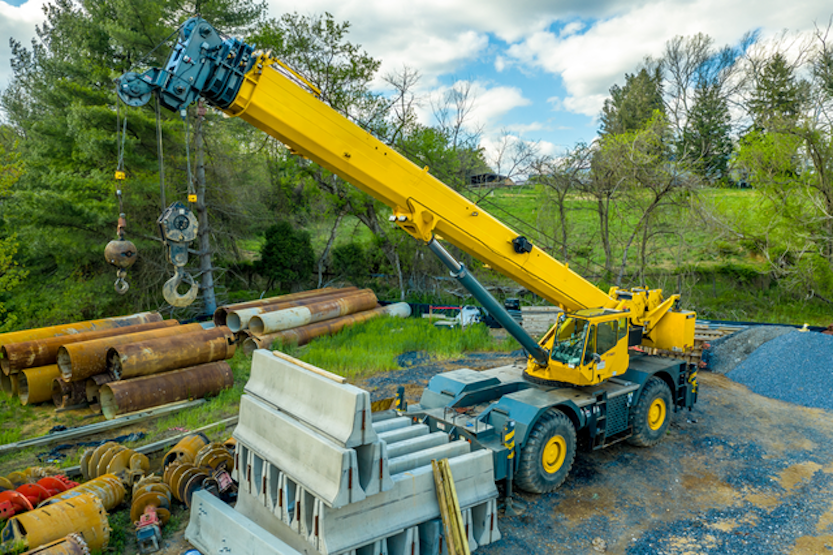What Does a Mobile Crane Operator Do?
What does a mobile crane operator do during a typical shift? It depends on the job and the rig they are running, but there are a few things all crane operators do. They build houses, bridges, buildings, go on rescue missions—basically anything heavy that needs to be moved. You might be hoisting materials around or even people, but one thing is for sure, operating a crane is really about fighting gravity and physics.
NCT is a heavy equipment school for experienced operators, companies, and individuals looking to start an exciting career. Contact us today for details on our heavy equipment certification courses.
What Do Crane Operators Do on a Typical Day?
Some people wonder what the difference is between running a mobile crane and other heavy equipment. There are a lot of similarities, but there’s a little more to mobile crane jobs than running an excavator or driving a big rig. It’s a combination of truck driving and lifting materials.
Most crane operators get up early or possibly work late at night. When crane operators get a job, they have to make sure to stay on schedule. If there’s a delay, you will have to stay until the job is finished. Plus there are lots of overnight jobs.
Getting to Work
First thing’s first, you’ll need to make sure everything’s good with a basic inspection. You’ll need to check all your pins, counterweights, inspect the cab, and so on. Next, you can start up the rig and recheck everything to make sure the crane is in order while it warms up. This means looking at the crane’s rigging, crane signals, crane controls, brakes, electrical system, and crane accessories.
Once you are ready and get the all-clear signal from your co-worker on the ground, it is time to get to work! You have your crane locked down, so it’s safe for when you’re hooked up or when you’re hoisting. If it’s a standard lift, the crane itself will have some sort of chart or screen that tells how much weight it can lift. For instance, if you need to pick up 10 tons, the crane should be set up to safely lift 10 tons. You’ll need to check the crane chart for this.
You will usually need to set out cones or traffic signs before working at night or in areas with traffic, so people know the crane is occupying the area. Once work for the day is finished, you’ll navigate your crane back into position and turn it off. Finally, you’ll fill out a crane inspection report to document your crane’s condition before you leave.
What Does it Take to be a Mobile Crane Operator?
You have to be able to think on your feet. Operators are often required to take quick action in order to protect themselves and other team members. For this reason, crane operator jobs are usually only advertised at places where there is a safety orientation required or other similar requirements that show the company takes safety seriously.
Mobile crane operators also need to be able to handle high-pressure situations. You might need to move in tight spaces—within inches. If not, someone could get hurt, or you can cause a disaster. This requires good hand-eye coordination and depth perception to move the boom into position without putting too much strain on any one area of the crane.
You can’t be lazy—you’ll be getting up from time to time—and if you’re tired and aren’t paying attention, the mud is going to hit the fan. Many crane operators need to be willing to get on the crane at all hours of the day and night, including holidays and weekends.
Mobile crane operators also need excellent communication skills to effectively work with others. They often need to rely on other workers or crane safety officers when in emergency situations. It takes trust on their part because there might be times where they can’t see anything in front of them, so they will need to rely purely on a signalperson.
Experience and Certifications
The process of becoming a crane operator does not happen overnight, and when crane operators are first starting out, they usually become apprentices. An apprentice or trainee also needs to take a training course before CCO certification. The tests to become a certified crane operator aren’t easy, but anyone cut out for the job can pass them with a few weeks of studying. Some people are quick studies and can learn everything needed to pass in a few days. Additionally, most heavy equipment operators are required to have a CDL license.
NCT offers crane training classes for both new crane operators and experienced operators to prepare for certification—and we guarantee you’ll pass your written test!
Perks of Being a Crane Operator
Crane training and certification is hard work, yet it comes with a lot of perks. Crane operators make very good money and are some of the highest-paid blue-collar workers out there. Once you pass the written tests and the practical test, you’ll have a ton of job security and freedom to choose where you want to work.
A new crane operator on their first job could make $50,000 a year—or more, because they’ll most likely be working five days a week and at least 50 hours.
Job Security and Satisfaction
There is a shortage of heavy equipment operators everywhere, giving anyone qualified for the jobs both flexibility and bargaining power. It also means that operators have many options for where to work and what cranes they can operate. Most crane operators work in local areas, but there’s work pretty much anywhere in the U.S. The high demand for skilled crane operators makes companies willing to pay them well, offer them good benefits, and give them the additional training they need to advance their careers.





